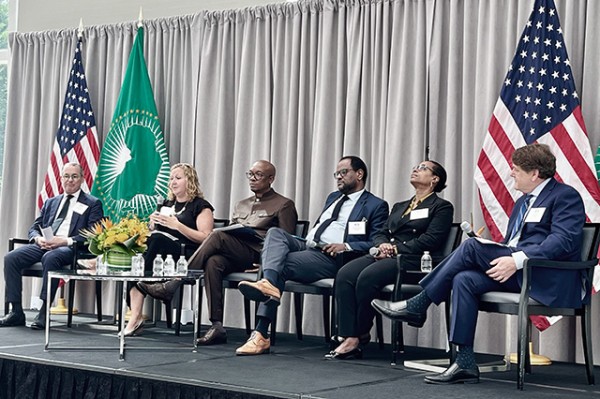African ministers of trade attending the 21st African Growth and Opportunity Act (AGOA) Forum held in Washington D.C. last week have urged the US government to do away with the AGOA’s annual reviews and expressed the importance of an expeditious renewal of the legislation by the end of 2024.
With AGOA expiring in 14 months, the African trade ministers called on the Biden administration and the members of US Congress to expeditiously renew the AGOA legislation with non-controversial enhancements and amendments for a minimum of 16 years to provide the required predictability and certainty to buyers, exporters, and investors. According to a read-out statement, they have also urged the US government to remove the annual reviews, expressing concerns over the unilateral removal of eligible members from the trade agreement by the United States.
The legislation, which was first enacted in 2000, gives about 30 eligible sub-Saharan African countries duty-free access to the US consumer market for most products without having to reciprocate, though in turn affords the US access to critical minerals, product value chains, and investment opportunities in Africa.
Yet, many experts have argued that AGOA has significantly benefited large resource-rich economies, such as Angola, Kenya, Nigeria, and South Africa, while smaller participant nations generally reaped no benefits. The AGOA Forum is held on an alternate basis between the United States and Africa and the meeting next year will be held in the Democratic Republic of Congo (DRC).
The 21st AGOA Forum in Washington last week brought together senior government officials from the United States, from AGOA-eligible countries, as well as representatives from continental and regional economic organizations, the private sector, labor, and civil society.
Participants debated a broad range of issues, including how to increase use of the program, how to better promote worker-centric trade policies, and how to better strengthen the partnerships to drive economic opportunity for both Americans and Africans. They also discussed barriers that women, youth, micro- and small- and medium-sized enterprises, and the African diaspora face in assessing trade and investment opportunities and explored how to better use the multilateral trading system to benefit more people, especially those in underserved communities.
Special attention was paid to opportunities to modernize the AGOA program to realize its full potential as a tool for development and to support regional economic integration, and how the United States and AGOA partners can collectively create and promote stronger, high-standard investment opportunities.



